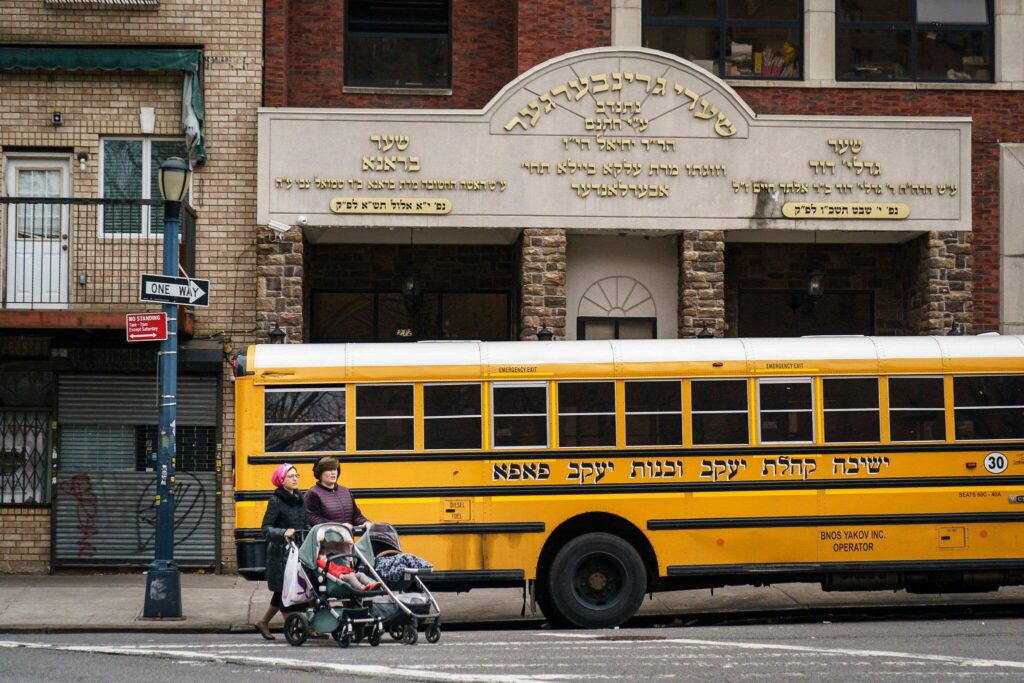Legal Dispute Emerges Over Yeshiva Education Standards in New York
Parents and advocacy organizations have initiated a lawsuit against New York State, opposing recent policy changes that significantly lower the educational benchmarks for yeshivas, the private Jewish religious schools. This legal challenge underscores fears that the rollback compromises the secular education component, which is intended to be on par with public school curricula. The case brings to the forefront a heated debate about educational oversight, religious rights, and the state’s responsibility to ensure academic adequacy.
Opponents of the policy changes raise several critical issues, such as:
- A marked reduction in instructional time devoted to essential subjects like mathematics, science, and English language arts.
- Weakened mechanisms for state supervision and enforcement of curriculum standards.
- Increasing academic performance gaps between yeshiva students and their public school counterparts.
State representatives argue that the revised guidelines honor religious and cultural independence. Nevertheless, advocacy groups stress that upholding rigorous educational standards is vital to safeguarding students’ futures and ensuring equal access to opportunities.
| Category | Previous Standard | Revised Policy |
|---|---|---|
| Hours of Secular Instruction | Over 35 hours per week | Reduced to approximately 20 hours per week |
| State Oversight | Mandatory annual evaluations | Less frequent and optional reviews |
| Curriculum Compliance | Strict enforcement | Relaxed and flexible guidelines |
Academic Concerns and the Effect on Secular Learning
Critics warn that diminishing educational standards in yeshivas could severely impact students’ academic development and their preparedness for life beyond religious schooling. Parents and education advocates express apprehension that a curtailed secular curriculum may hinder students’ ability to pursue higher education or enter competitive job markets. They argue that a well-rounded education, integrating both religious and secular studies, is crucial for nurturing analytical thinking and proficiency in core disciplines such as math, science, and language arts.
Highlighted concerns include:
- Significant cuts in time allocated to fundamental secular subjects.
- Absence of standardized assessments to monitor academic progress.
- Inadequate qualifications among teachers responsible for secular instruction.
| Subject Area | Current Requirement | Effect of Rollback |
|---|---|---|
| Mathematics | One hour daily | Reduced to 30 minutes daily |
| Science Education | Comprehensive curriculum | Limited exposure |
| English Language Arts | Mandatory standardized testing | Testing made optional |
State’s Rationale and Legal Challenges Surrounding Oversight Relaxation
State officials defend the easing of regulations by emphasizing the importance of preserving “cultural autonomy” and respecting the unique educational traditions within yeshiva communities. They argue that stringent oversight infringes on parental rights and community governance, suggesting that previous standards were overly rigid and failed to accommodate religious and localized educational priorities. This approach reflects an effort to balance regulatory frameworks with the community’s desire for pedagogical independence, rejecting a uniform model for diverse schooling systems.
Nonetheless, this position has sparked legal concerns. Opponents highlight potential breaches of state constitutional provisions mandating adequate secular education for all children. There is ongoing debate about whether the rollback contravenes broader educational statutes designed to protect children’s rights and promote equitable learning opportunities. The table below summarizes the main legal contentions, illustrating the friction between regulatory flexibility and educational accountability:
| State Justification | Legal Concern | Potential Outcome |
|---|---|---|
| Cultural Autonomy | May conflict with mandated state education standards | Could result in legal challenges over educational adequacy |
| Parental Rights | Risk of compromising child welfare interests | Need to balance individual freedoms with public education norms |
| Localized Oversight | Potential for unequal educational quality across regions | Possible federal intervention for civil rights compliance |
- Legal advocates argue that reduced oversight threatens educational standards.
- Supporters of strict standards insist on a baseline secular curriculum for all students.
- State officials maintain that flexibility is necessary to protect religious freedoms.
Demand for Enhanced Clarity and Accountability in Yeshiva Education
There is a growing call from community members and education advocates for New York State to establish clearer, more stringent policies regarding the enforcement of curriculum standards in yeshivas. Critics argue that the current framework is vague, allowing inconsistencies that undermine the quality of secular education and complicate state oversight efforts.
Advocacy groups propose the following measures:
- Thorough audits of yeshiva curricula to verify adherence to state educational standards.
- Publicly available, well-defined benchmarks outlining acceptable secular studies within religious schools.
- Regular and transparent reporting systems to enhance accountability.
- Resources and support for parents seeking alternative educational options for their children.
| Requirement | Current Situation | Recommended Action |
|---|---|---|
| Curriculum Transparency | Limited disclosure to the public | Mandatory annual curriculum reporting |
| State Enforcement | Irregular and infrequent inspections | Scheduled and surprise compliance audits |
| Parental Engagement | Minimal role in curriculum decisions | Establishment of parent advisory committees |
Conclusion: The Future of Yeshiva Education Standards in New York
The ongoing lawsuit over educational standards in New York’s yeshivas spotlights a broader conflict between ensuring equitable education and respecting religious freedoms. Parents and advocacy groups remain steadfast in their pursuit of a comprehensive education that equips all children for success in today’s world. Meanwhile, state authorities face increasing demands to enforce and clarify regulations. The resolution of this case may establish a pivotal precedent for how religious educational institutions are governed, not only in New York but potentially across the United States.













